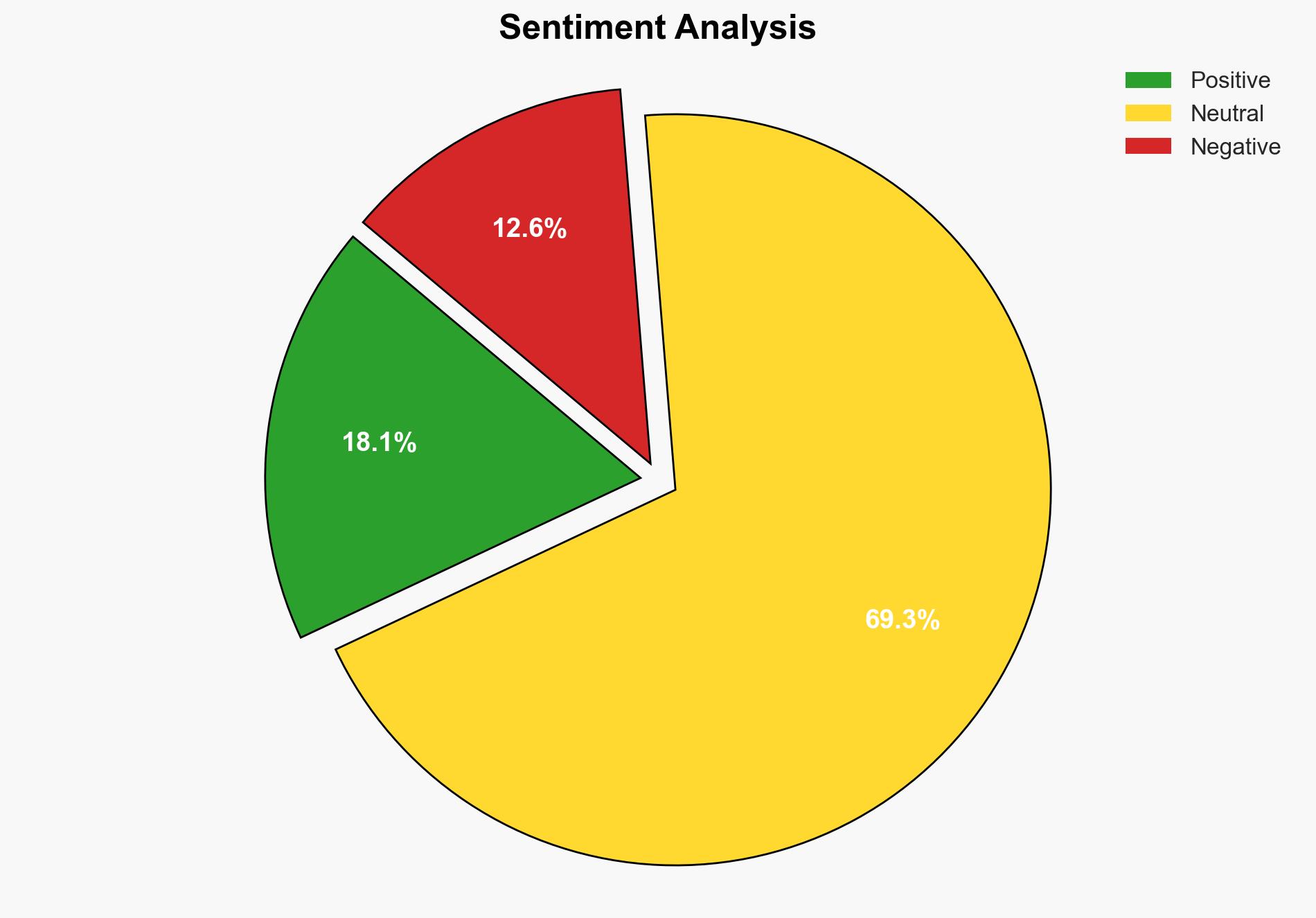Peace Lessons for Ukraine from Its Black Sea Neighbors – Forbes
Published on: 2025-03-01
Intelligence Report: Peace Lessons for Ukraine from Its Black Sea Neighbors – Forbes
1. BLUF (Bottom Line Up Front)
The ongoing conflict in Ukraine, driven by resource nationalism and geopolitical tensions, highlights the need for innovative peacebuilding strategies. Lessons from Black Sea neighbors suggest that hybrid governance models and resource interdependency can facilitate durable peace. Key recommendations include exploring autonomous governance arrangements and leveraging natural resource flows to reduce conflict escalation.
2. Detailed Analysis
The following structured analytic techniques have been applied for this analysis:
SWOT Analysis
Strengths: Ukraine’s rich arable land and mineral wealth position it as a significant agricultural and industrial hub.
Weaknesses: The rigid adherence to hard borders and protectionist policies exacerbates tensions.
Opportunities: Hybrid governance models and shared resource management can enhance regional stability.
Threats: Continued conflict risks further destabilization and economic downturns.
Cross-Impact Matrix
Events in Ukraine, such as resource management and border delineation, have direct implications for neighboring regions like Moldova and Georgia, where similar hybrid governance models have been implemented with varying degrees of success.
Scenario Generation
Potential scenarios include:
- Best-case: Successful implementation of hybrid governance leads to regional stability and economic growth.
- Worst-case: Escalation of conflict due to failure in negotiations and resource management.
- Most likely: A prolonged stalemate with intermittent conflicts and diplomatic efforts.
3. Implications and Strategic Risks
The primary risks include the potential for increased military conflict, economic sanctions, and disruptions in resource flows. These factors could significantly impact national security and regional stability, with broader implications for international economic interests.
4. Recommendations and Outlook
Recommendations:
- Encourage diplomatic efforts to establish hybrid governance models in conflict-prone areas.
- Promote regional cooperation in resource management to mitigate conflict drivers.
- Implement regulatory frameworks that support autonomous governance while respecting national sovereignty.
Outlook:
Best-case: Regional stability is achieved through successful diplomatic and governance initiatives.
Worst-case: Continued conflict leads to further destabilization and economic hardship.
Most likely: A mixed outcome with ongoing negotiations and periodic conflicts.
5. Key Individuals and Entities
The report references significant individuals such as John McCain and entities involved in the geopolitical landscape, without detailing their specific roles or affiliations.





